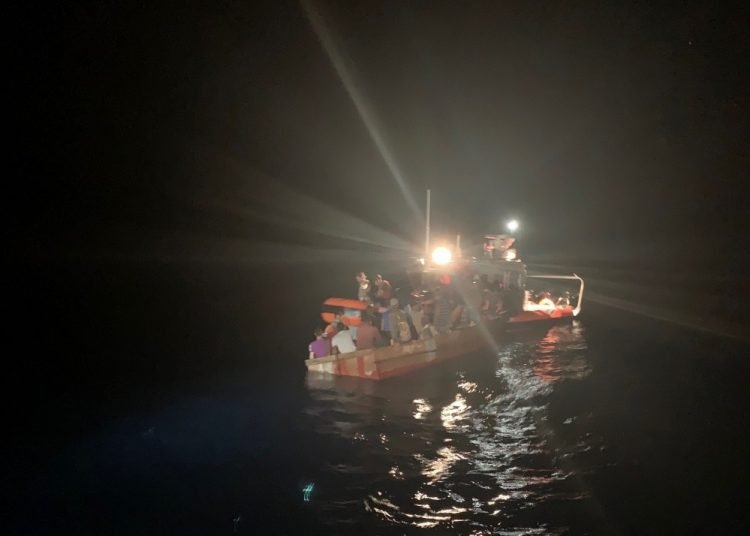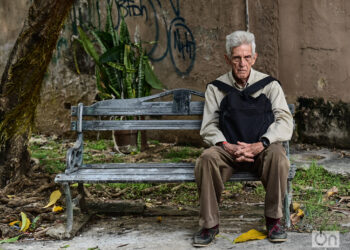The U.S. Coast Guard intercepted south of Key West, in the Florida Keys, a rustic vessel with 27 Cubans on board, the authority said this Thursday. It did not report injuries or incidents.
As it said in a press release, the Coast Guard station in Key West was alerted last Saturday by a good Samaritan about a possible boat with immigrants on board, who could not be seen in the dark of the night.
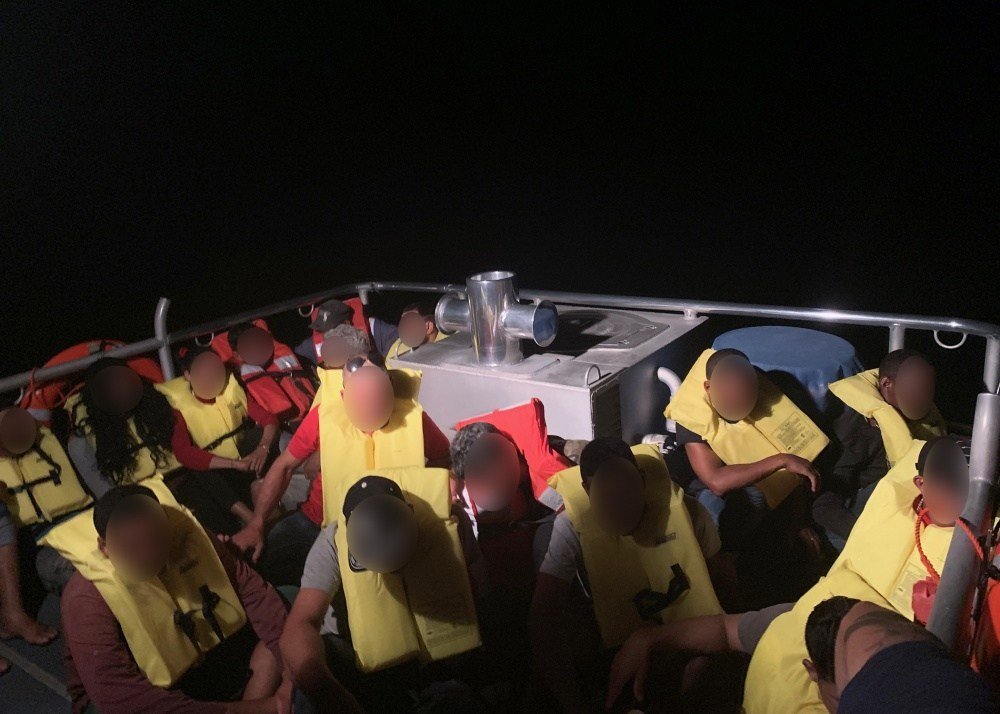
The Coast Guard sent a ship that spotted the boat with the 27 Cubans on board, 22 of them men, four women and a minor, according to the authority, which said they were all safely transported to the Coast Guard’s ship.
Captain Jason Ryan, of the Seventh Coast Guard District, said that attempts like these are “extremely dangerous.”
“Especially during the hurricane season when weather and sea conditions can dramatically and rapidly change in a matter of minutes,” he added in statements in the press release.
Ryan reported that, according to the current national immigration policy, the Cubans apprehended on Saturday in the ocean will be repatriated to their country.
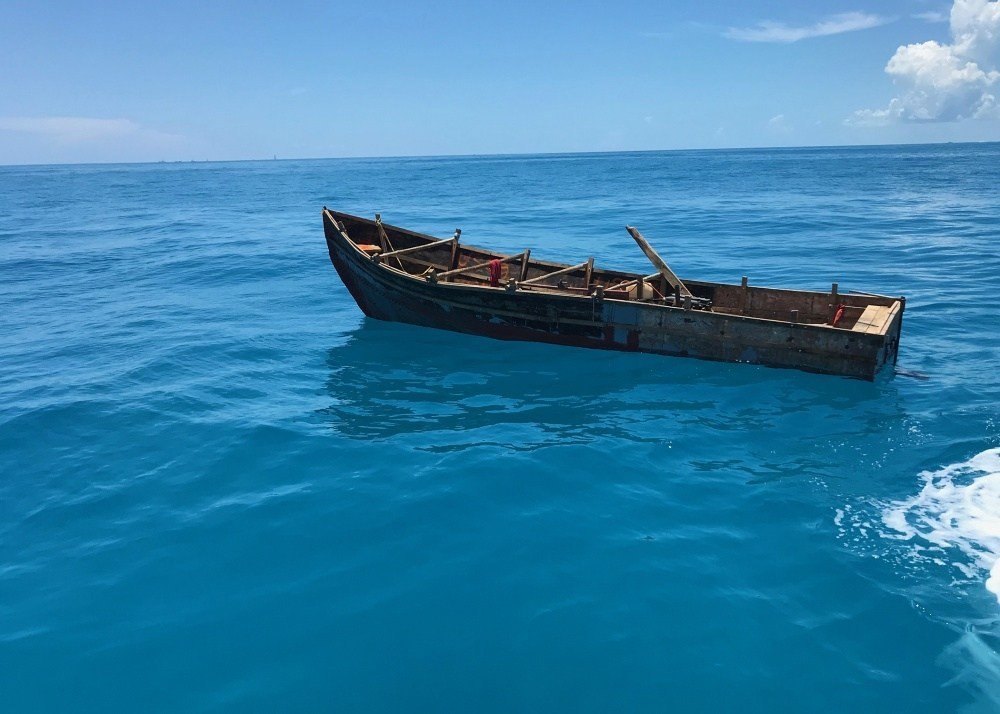
The interception comes after weeks ago the authority arrested five Cuban immigrants, all adult males, when they were sailing in a small vessel, about 88 kilometers southwest of the island of Marathon, in the southern tip of Florida, with the intention of entering the United States.
Some 438 Cuban migrants have attempted to enter the United States illegally by sea in fiscal year 2019, which began on October 1, 2018.
This figure, which includes the total number of arrests at sea in the Straits of Florida, the Caribbean and the Atlantic, is more than the 384 Cuban migrants intercepted in fiscal year 2018.
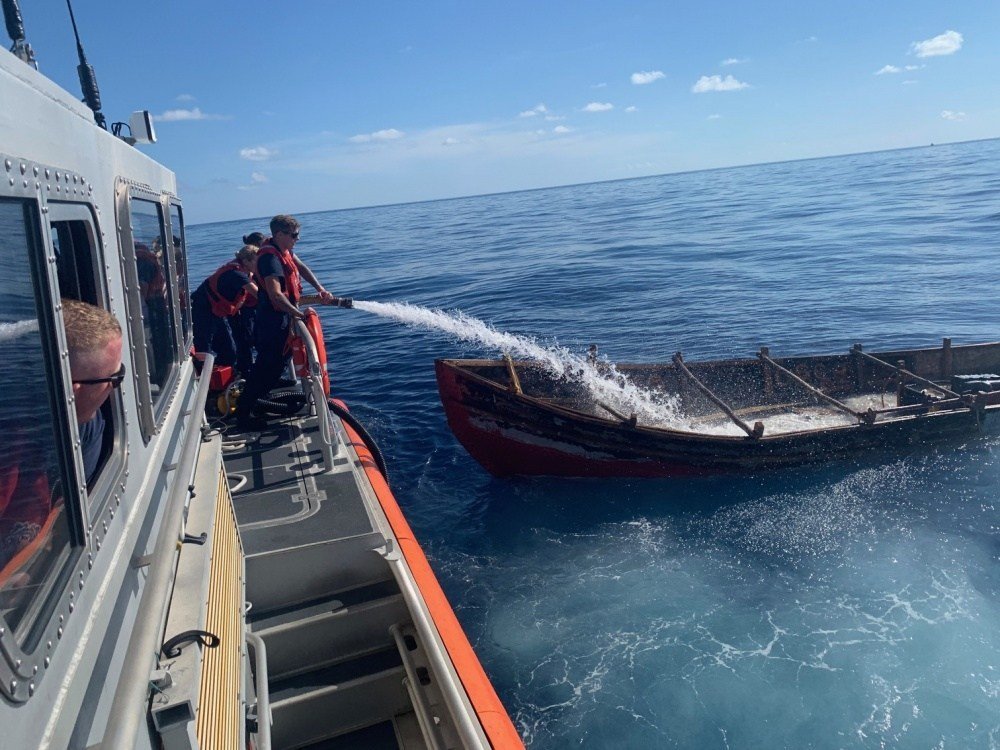
In January 2017, then U.S. President Barack Obama canceled the “wet foot/dry foot” policy, enacted in 1995 and whereby Cubans who touched land were favored with the Cuban Adjustment Act and could stay in the country and even obtain permanent residence, while the others were deported to the island.
Shortly before the elimination of this benefit, an unusual arrival of migrants from the Caribbean country was registered in the Straits of Florida, as many anticipated the end of the “wet foot/dry foot” policy.
After the cancellation of the policy, the crossing of the so-called “rafters” was markedly reduced and became more unusual.

